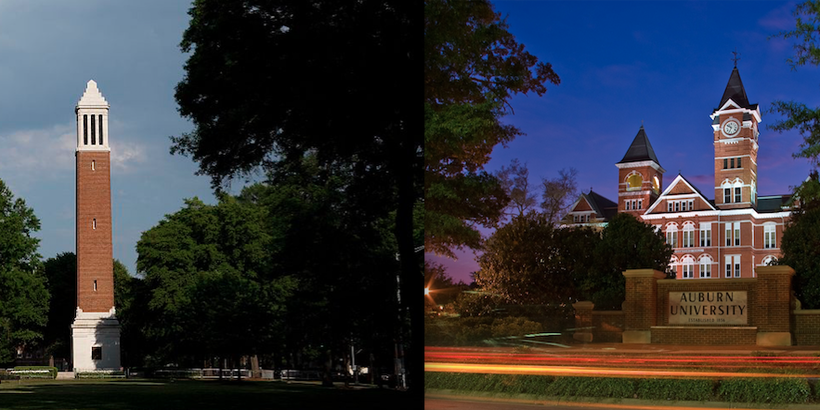If there were a type of “do no harm” Hippocratic Oath that Alabama lawmakers would swear to abide by, they wouldn’t have anything to do with proposed legislation which would weaken state control over the sale of liquor, ultimately leading to higher prices, as well as increased consumption with all its associated social ills.
The legislation, Senate Bill 115, sponsored by state Senator Arthur Orr, R-Decatur, would force the state to close its revenue-producing ABC liquor stores and terminate more than 600 employees. This would open the door for large, out-of-state corporations that have bankrolled similar measures to dismantle controls in other states to come in and profiteer off Alabamians. In 2011, for example, Costco spent $22 million to get Washington State out of – and Costco in – the liquor business.
Sen. Orr says his bill would save Alabama millions of dollars without raising taxes. That’s not what happened in other states (Washington, West Virginia and Iowa) which went down this road. And it is not what is likely to happen here should lawmakers take us along the same path.
An analysis of the Orr bill conducted by respected Auburn University at Montgomery economist Dr. Keivan Deravi points out the change would save the state little to no money. In fact, according to the Deravi study, selling off state stores to profit-driven retailers would hurt the pocketbooks of responsible consumers and saddle Alabamians with increased social costs, including more underage drinking and drunk-driving deaths.
So, who does this bill really benefit? Based on the experiences of other states and the evidence in the Deravi report, it’s certainly not the state, nor the vast majority of our fellow citizens.
Here are some of the highlights of the Deravi report, which we commissioned last year to determine the fiscal and social effects of such legislation after Orr introduced a similar bill:
• Despite Orr’s initial claim that closing ABC stores would save the state $46 million a year (a figure he has since lowered to $15 million to $20 million), the most likely saving is between $4 million and $6 million. (Even that, though, is before the costs of severing up to 600 ABC store employees and distribution are considered.) Depending on the number of private package stores that survive the shakeup, it is possible the state won’t realize any financial gain, Deravi states.
• Liquor prices would go up, an “implicit tax increase” on responsible consumers, as Deravi terms it.
Increased availability (longer hours and more stores open on Sundays) would lead to increased consumption, especially among underage and problem drinkers.
• The increased social costs associated with increased consumption, such as drunk driving, addiction and underage drinking, would be borne by state residents, not the retailers who profit from it.
• Hundreds of jobs, and the beneficial economic impact of those jobs, would be eliminated. Some of those laid off would end up on state unemployment.
• The ABC Board would go from a self-supporting agency to one dependent on funding from an anemic state General Fund. That could affect the agency’s ability to enforce the state alcohol laws and protect public safety.
None of those outcomes can be described as good for Alabama. They hurt responsible consumers. They endanger public health and safety. And they are detrimental to state budgets.
Alabama is known in the alcohol industry as a “control state.” This means the state, through the Alcoholic Beverage Control Board, controls the sale of alcohol through licensing and the operation of wholesale distribution and retail stores. Since the end of Prohibition in the 1930s, the control system has proven to be the most beneficial – both in terms of revenue for the state and in limiting the social harms of alcohol.
In general, control states like Alabama report lower consumption and higher revenue from the sale of alcohol. That’s a win-win.
Through its efficient operation, the ABC Board provides more than $200 million each year to state and local governments, with money flowing to the General Fund, Department of Human Resources, Department of Mental Health, education, and cities and counties. In fact, since 1937, the ABC Board has sent more than $6 billion to Alabama’s governments and agencies.
Control is clearly working for Alabama. Why change it? Indeed, why, when our state desperately needs stable, dependable revenue sources and Alabamians working and paying taxes, would we take this risk?
Most Alabama legislators may not be physicians. But they can at least avoid doing harm by rejecting a bill that would hurt both the state budget and the public health.
H. Mac Gipson is administrator of the Alabama Alcoholic Beverage Control Board, which controls alcoholic beverages in the state through distribution, licensing, enforcement and education. He can be reached at mac (dot) gipson (at) abc (dot) alabama (dot) gov.












